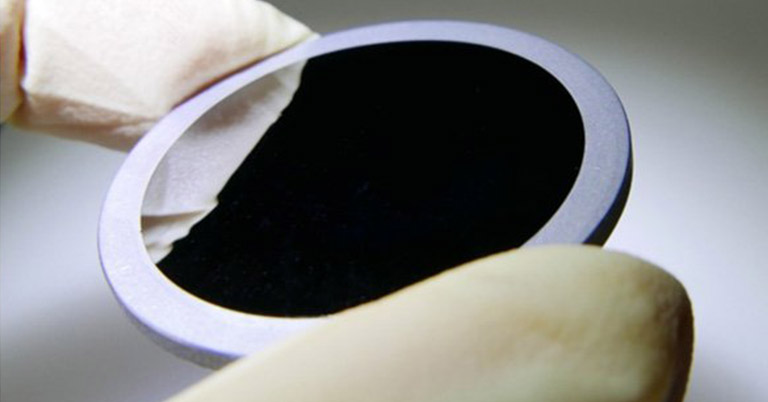
Panasonic has developed a new method for molding lens that it claims will improve the performance of far-infrared cameras. In addition, the company even claims that it has halved the production cost of lenses with this new method which uses chalcogenide glass.
New Far-infrared camera lens from Panasonic
As mentioned earlier, Panasonic is using Chalcogenide glass which it says has excellent transmission characteristics in the far-infrared. This new technique allows the company to manufacture a wide range of lenses, including the world’s first highly hermetic frame-integrated lens without adhesive.
Panasonic believes its latest breakthrough in glass molding technique will help promote the use of far-infrared sensors/lenses in different fields. These are used to monitor and detect heat/objects in energy management systems and security cameras.
In addition, far-infrared sensors are also seeing increased usage in self-driving autonomous vehicles, where they help detect distant people and objects at night.
- Also Read:

In the present context, far-infrared sensors use low-cost silicon as the lens material. Panasonic notes that the material is not ideal when pushing for higher pixel counts because of its low transmittance.
To avoid this, manufacturers use germanium spherical lenses. But then they have to address the increased aberration, which requires the use of complex combinations of different lenses. All this adds to the size and manufacturing cost of the lenses.
By contrast, Panasonic’s latest far-infrared lens modules boast higher performance, low cost, and are ready for mass production.
Advantages
The new glass molding technique announced by Panasonic does not use any adhesive. As a result, it significantly reduces the risk of gas contamination. Likewise, it also protects the edge of the lens while also improving the accuracy during the installation of the lens on the barrel.
- Applicable for aspherical and diffractive lenses of varying size
- Frame-integrated lenses without gas contamination
- Enhanced performance of sensors
The company has already started the production of new far-infrared aspherical lenses with this technique at the Yagamata Factory. Panasonic is also taking prototype orders.
- Meanwhile, check out our unboxing and first impressions of the Redmi Note 11.







![Best Gaming Laptops in Nepal Under Rs. 250,000 (रु 2.5 Lakhs) [2025] Best Gaming Laptops Under 2.5 lakhs in Nepal [Feb 2025 Update]](https://cdn.gadgetbytenepal.com/wp-content/uploads/2025/02/Best-Gaming-Laptops-Under-2.5-lakhs-in-Nepal-Feb-2025-Update.jpg)
![Best Gaming Laptops in Nepal Under Rs. 120,000 (रु 1.2 Lakhs) [2025] Best Budget Gaming Laptops Under Rs 120000 in Nepal 2025 Update](https://cdn.gadgetbytenepal.com/wp-content/uploads/2025/05/Best-Budget-Gaming-Laptops-Under-Rs-120000-in-Nepal-2024-Update.jpg)
![Best Laptops Under Rs. 80,000 in Nepal [2025] Best Laptops Under 80,000 in Nepal March 2025 Update](https://cdn.gadgetbytenepal.com/wp-content/uploads/2025/03/Best-Laptops-Under-80000-in-Nepal-March-2025-Update.jpg)
![Best Gaming Laptops in Nepal Under Rs. 200,000 (रु 2 Lakhs) [2025] Best gaming lapotp under 2 lakhs Nepal Feb 2025](https://cdn.gadgetbytenepal.com/wp-content/uploads/2025/01/Best-Gaming-Laptops-Under-2-Lakh-Nepal-Feb-2025-Update.jpg)

![Best Mobile Phones Under Rs. 15,000 in Nepal [Updated 2025] Best Phones Under 15000 in Nepal 2024 Budget Smartphones Cheap Affordable](https://cdn.gadgetbytenepal.com/wp-content/uploads/2024/03/Best-Phones-Under-15000-in-Nepal-2024.jpg)
![Best Mobile Phones Under Rs. 20,000 in Nepal [Updated] Best Mobile Phones Under NPR 20000 in Nepal 2023 Updated Samsung Xiaomi Redmi POCO Realme Narzo Benco](https://cdn.gadgetbytenepal.com/wp-content/uploads/2024/01/Best-Phones-Under-20000-in-Nepal-2024.jpg)
![Best Mobile Phones Under Rs. 30,000 in Nepal [Updated 2025] Best Phones Under 30000 in Nepal](https://cdn.gadgetbytenepal.com/wp-content/uploads/2025/01/Best-Phones-Under-30000-in-Nepal.jpg)
![Best Mobile Phones Under Rs. 40,000 in Nepal [Updated 2025] Best Phones Under 40000 in Nepal 2024 Smartphones Mobile Midrange](https://cdn.gadgetbytenepal.com/wp-content/uploads/2024/02/Best-Phones-Under-40000-in-Nepal-2024.jpg)
![Best Mobile Phones Under Rs. 50,000 in Nepal [Updated 2025] Best Phones Under 50000 in Nepal](https://cdn.gadgetbytenepal.com/wp-content/uploads/2025/01/Best-Phones-Under-50000-in-Nepal.jpg)
![Best Flagship Smartphones To Buy In Nepal [Updated] Best flagship phone 2025](https://cdn.gadgetbytenepal.com/wp-content/uploads/2024/07/Best-Flagship-Phones-who-is-it-ft-1.jpg)